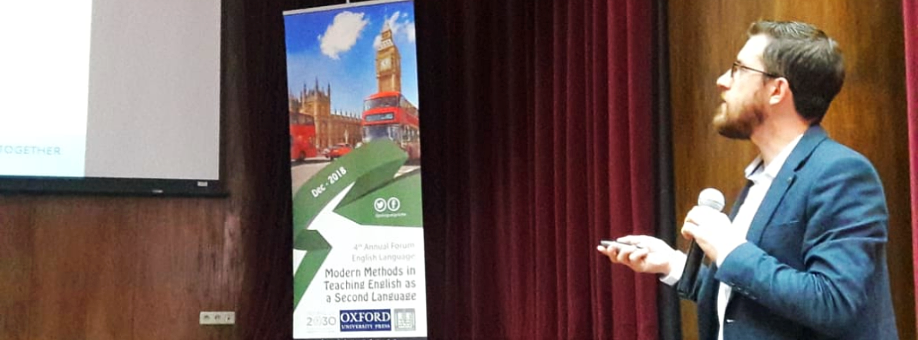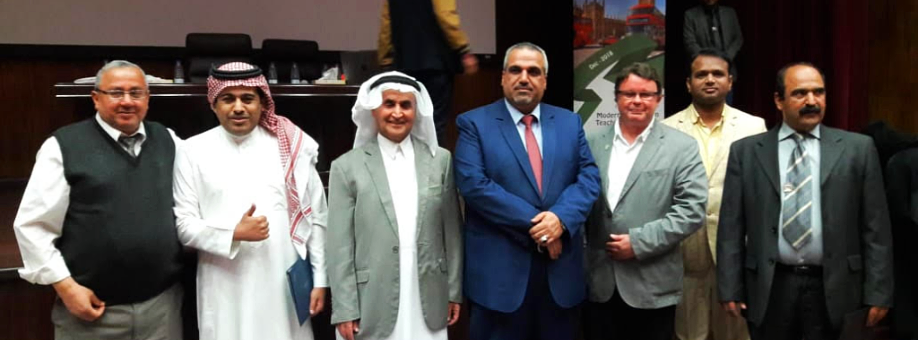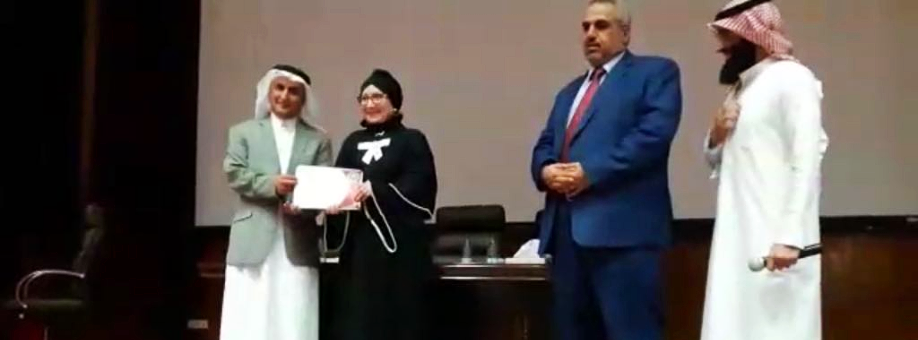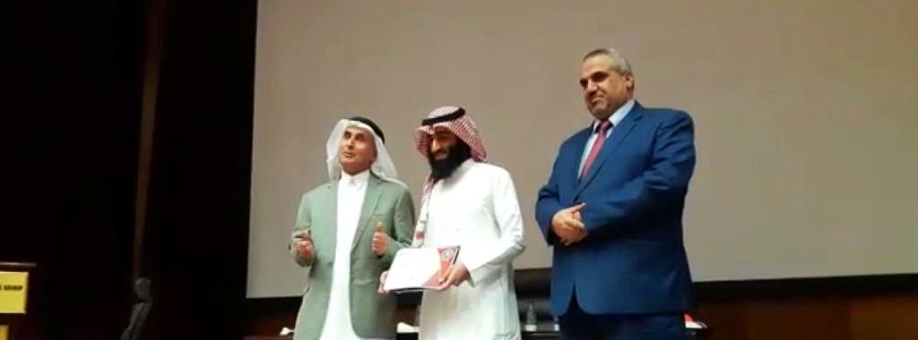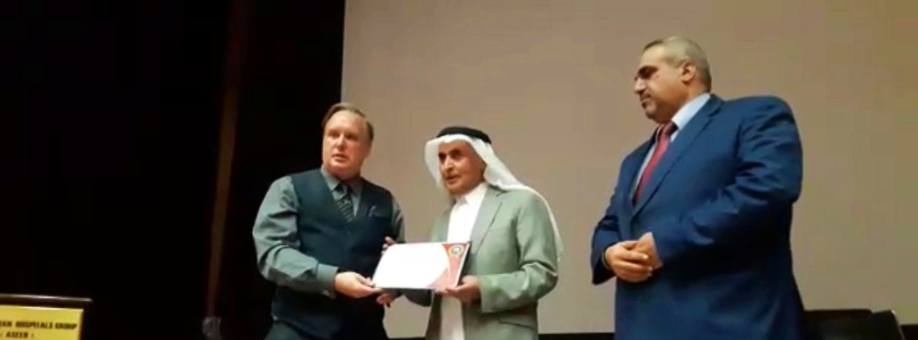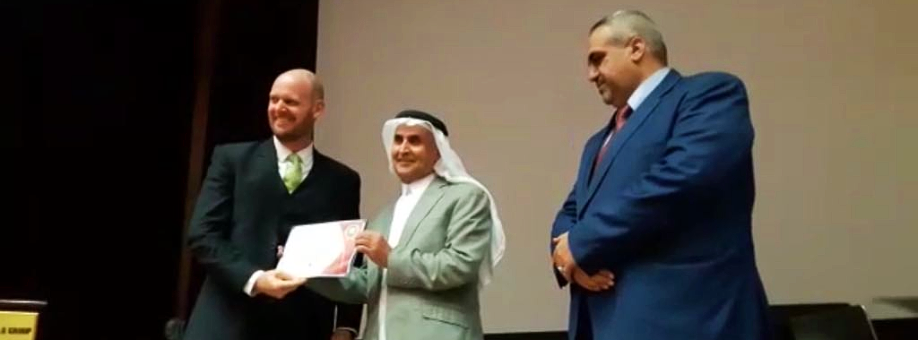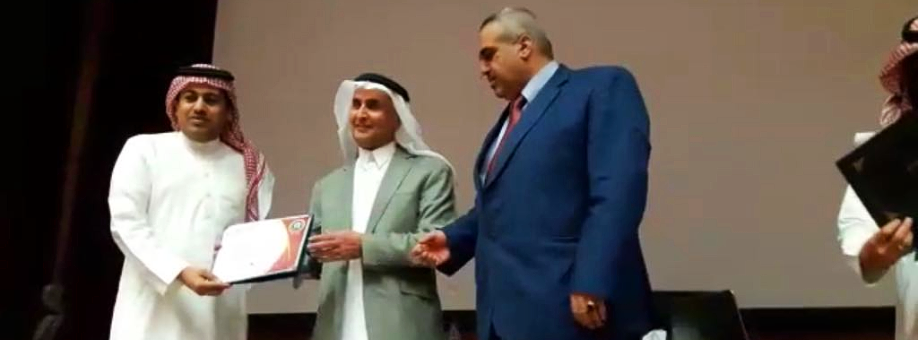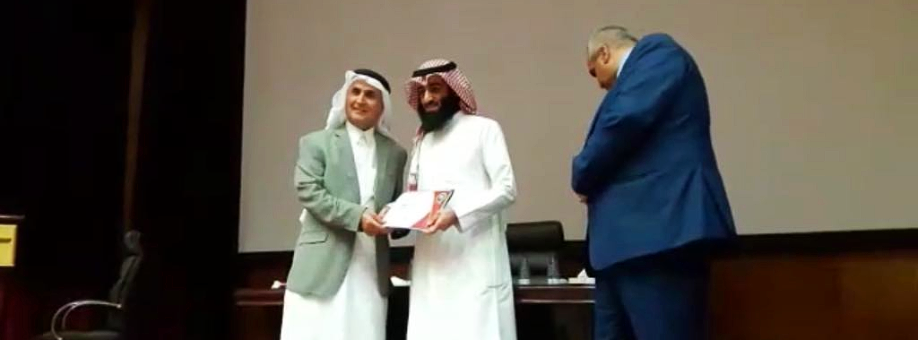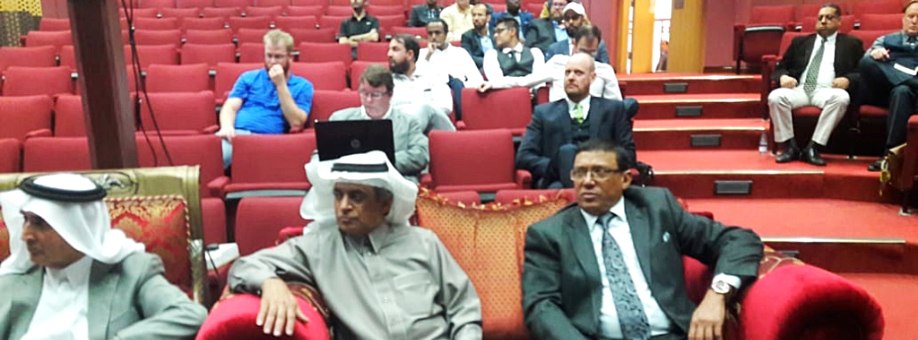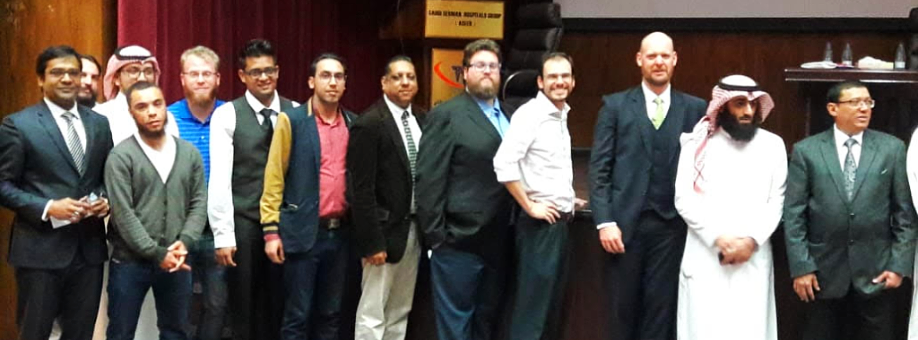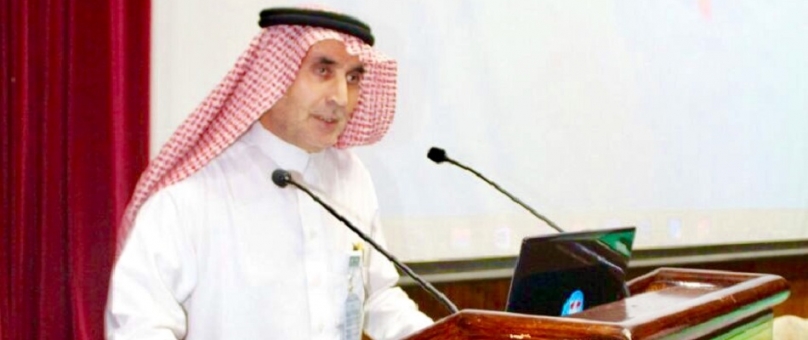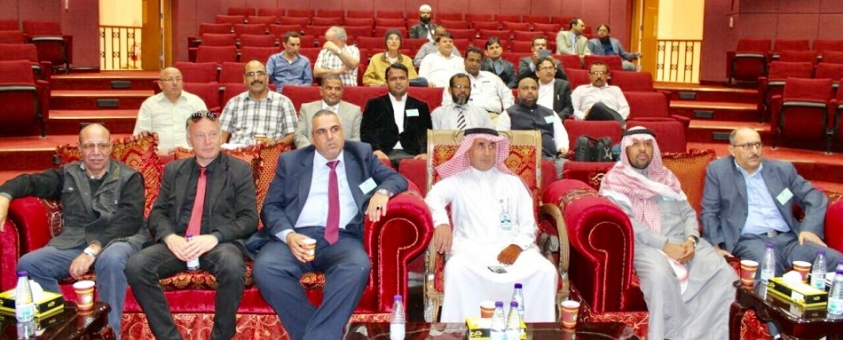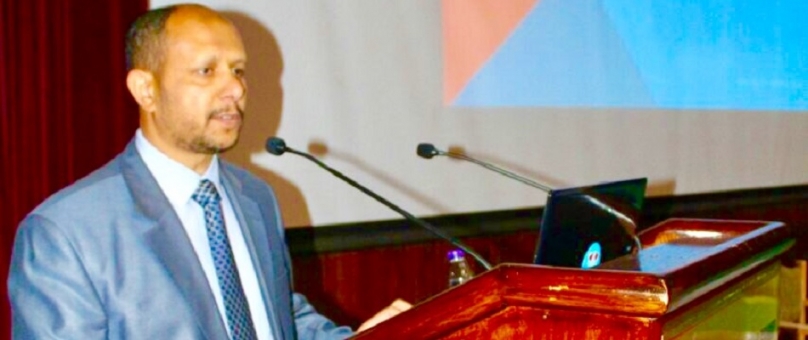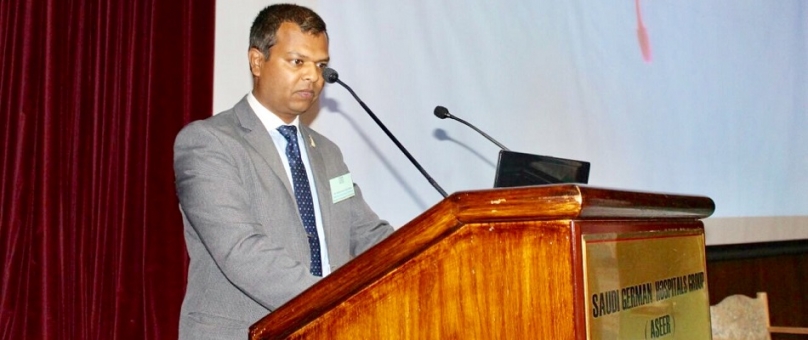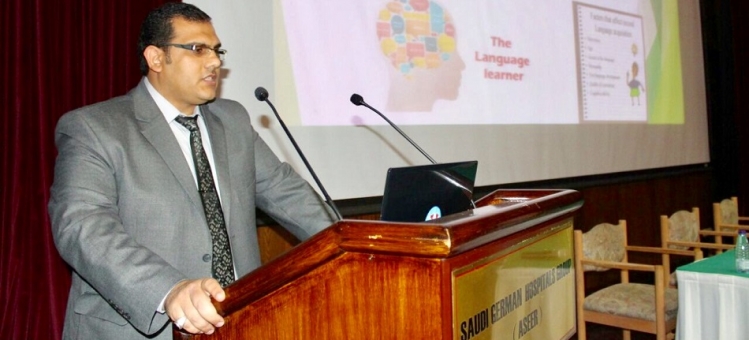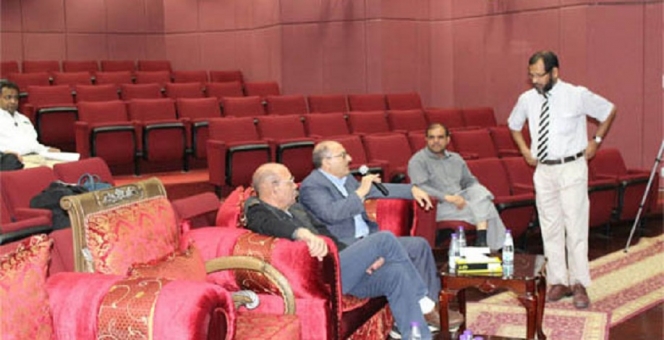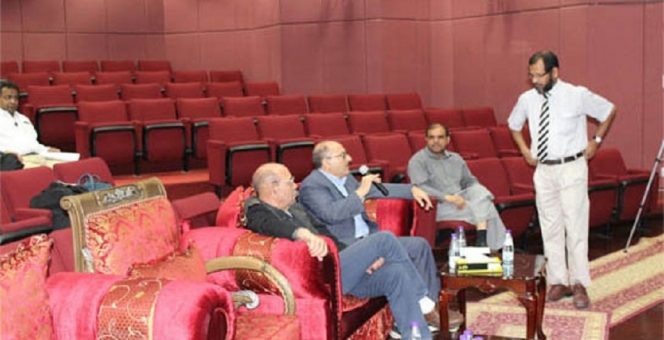On December 8, 2018, the 4th Annual Forum was held which was titled Modern Methods in Teaching English as a Second Language in collaboration with Oxford University Press at Saudi German Hospital. The event was conducted under the supervision of the Faculty of Languages and Translation Dean, Dr. Abdullah Al-Melhi, and Dr. Mowafiq Al-Momani.
The purpose of the forum was to raise awareness of modern concepts of English language teaching. Dean Abdullah Al-Melhi began the program with a welcome speech. In his speech, he explained how teaching methods could be improved through such a forum. He reiterated that it would help share innovative ideas about modern pedagogy. He suggested that we make greater use of such events. Faculty development through forums and the like are an integral aspect of our goal of continuous improvement in delivering a world-class language education, he added. The participants included both male and female faculty members working at King Khalid University.
The morning session included a presentation by Mr. Zaid Ben Hamad from Oxford University Press titled Teaching ESP highlighting practical teaching with reference to English for Specific Purposes. He showed how to model a warm-up task, the importance of having proper knowledge of the specialism before designing an ESP course, and how to design a fact-sheet. The session included some activities with questions that actively involved the participants.
The afternoon session included six presentations.
Dr. Eman Alzaanin gave a presentation titled EFL Writing Instruction from a Cognitive Ecological Perspective. She highlighted pedagogical practices in L2 writing classrooms and L2 writing teacher cognition. She also explained the contribution of the cognitive-ecological model that gives insights into cognition networks, broader understanding types of knowledge, context, and stimulus for teacher cognition. The bottom line was the fact that in EFL writing instruction, a teacher must have a clear idea about ecology impact on the class.
Dr. Munassir Alhamami spoke on the subject of Digital Presentations in EFL Classrooms that focused on various ways to use digital presentations in class. He emphasized the need of appropriateness of material we choose, and understanding copyright issues before applying them in class. He showed how digital presentations facilitate the learning process by making difficult ideas easy, playing the role of ice-breakers. Later he showed the steps of creating such presentations by understanding rubrics.
Mr. Chris Harris spoke about Classroom Management in the context of Saudi Arabia that emphasized creating a rapport with students. Dressing appropriately may create a good impression, he added. Classroom management is successful, he said, if the lesson gives proper satisfaction and enjoyment in teaching. He also focused on how to address other related issues such as disruption, coming late, and not bringing books and pens. Some culturally sensitive topics, he said, must be avoided. He concluded that a happy teacher makes happy students.
Mr. Stephen Sampliner’s presentation focused on giving accurate instructions. It was titled How do You Measure a Successful Day of Teaching? The role of instructions might play an important role in determining how successful a lesson is, he said. He then highlighted some key aspects of giving instructions. He emphasized making use of visual demonstrations in giving instructions. He reiterated that instructions should be easy, direct and short.
Mr. Michael Maschmeier's presentation was about Writing in the Classroom. He began by the benefits of writing in class – observing and replicating real-world text. He emphasized involving students in writing a complete unified piece of writing instead of just getting them involved in language-related tasks. He explained the process of writing – pre-writing, making the first draft, revising and editing, and publishing and feedback. He also focused on self-editing, practicing writing long essays, academic essays, articles, cover letters, and emails.
Dr. Sara Sevinj Huseynova spoke about the Key Concepts in Language Assessment. She particularly highlighted the types of assessment and assessment principles. While talking about assessment principles, she explained reliability, validity, practicality, and washback. Teachers should have a clear idea about why, what, and how the assessment is done. She also focused on how feedback should be given to learners in a non-judgmental and unbiased way.
The attendees greatly benefitted from all the presentations. Then there was a Q&A session after each session in which many participants raised important issues, and all benefitted from the discussion.
Dean Abdullah Al-Melhi gave a concluding speech in which he emphasized sharing experience through such a forum. He thanked all of the participants, attendees and those working behind the scenes. The Faculty of Languages and Translation, he added, is committed to a culture of on-going improvement in language education and professional development in teaching. The dean, vice dean, and chairman are committed to holding forums such as this in support of this worthy objective.
The event was worthwhile and well-attended.
Date: 12-10-18
Source: Mohammad Adil Siddique and Mahmudul Haque
Multimedia Source: Mohammad Taisir Albukaai

